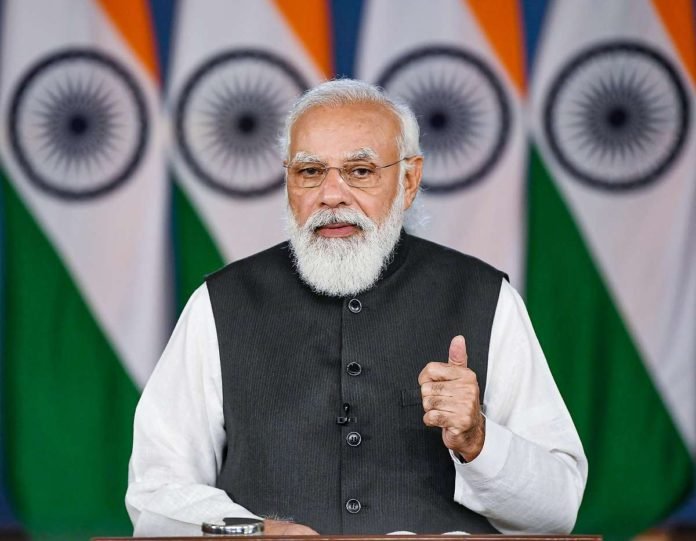Addressed to the nation’s on 19 Nov morning, Prime Minister Narendra Modi announced that the three controversial farm laws passed in September 2020 stand repealed by the Union government. Farmers across the country have been protesting against these laws since even before they were passed. They believe that the laws will benefit large corporates and hurt farmers.
Hundreds of farmers have been camping at Delhi borders since November 2020 with the demand that the government repeals the Farmers’ Produce Trade and Commerce (Promotion and Facilitation) Act, 2020; Farmers’ (Empowerment and Protection) Agreement on Price Assurance and Farm Services Act, 2020; and the Essential Commodities (Amendment) Act, 2020. Hundreds of farmers have lost their lives during the protest, unions have said.
Before coming to the point, Modi spent a good amount of time claiming that his government had uplifted India’s farmers and done “everything possible” to help them. After spending ten minutes extolling his government’s claimed achievements, he moved on to praising the three controversial farm laws brought in by his government.
He then moved to talk about the protests. “It is important for us that we have not been able to convince the benefits of these laws to all farmers. We have been trying and trying, using different mediums, and talks have been on. We have heard their arguments and understood them. We were even ready to change some provisions and suspended these laws for two years. The matter is also before the Supreme Court.”
“I apologise to the nation because there seems to have been something lacking in our efforts, because of which we were unavailable to explain the truth to some farmers. Today is Guru Nanak Jayanti and not the time to blame anyone. I would like to announce to everyone that we have decided to repeal these laws. I hope the protesting farmers will now return to their homes, return to their farms, and we can start afresh.”
In the early parts of his speech on Friday morning, PM made it a point to try and establish his closeness to farmers. “In the over five decades of my life, I have witnessed the struggle of farmers closely. That is why after becoming prime minister, my government gave farmers’ issues primacy.”
“Most people don’t know that most farmers in India are small farmers, with less than two hectares of land. Their entire life is based on this small plot of land. It’s how they feed themselves and their families. Inheritance over generations makes these plots even smaller. To help small farmers we have worked on beej, beema, baazar, bachat. We have joined farmers to soil health cards, insurance and other facilities. Agricultural production has also increased because of soil health cards.”
The farmers’ protests have been impossible to ignore for the Modi government, with farmers camping at Delhi’s borders for more than a year now and making clear that nothing less than a total repeal would assuage them. Opposition parties from across the country have supported the farmers’ protests. Farmers had also decided to make this an electoral matter and actively campaigned against the Bharatiya Janata Party ahead of assembly elections.
States going to the polls early next year including Punjab and Uttar Pradesh have been at the centre of the farmers’ protests. Most poll watchers believed that the farm laws would have an impact on voters in parts of these states.
The Samyukt Kisan Morcha, an umbrella organisation of farmers’ bodies that has been spearheading the protests, welcomed the move. At the same time, it also reminded the prime minister that the movement was not just for the repeal of the farm laws, but also to demand remunerative prices for produce.
Latest, Congress leader P. Chidambaram said, “PM’s announcement on the withdrawal of the three farm laws is not inspired by a change of policy or a change of heart. It is impelled by fear of elections!”
“What cannot be achieved by democratic protests can be achieved by the fear of impending elections! Anyway, it is a great victory for the farmers and for the Congress party which was unwavering in its opposition to the farm laws.”

